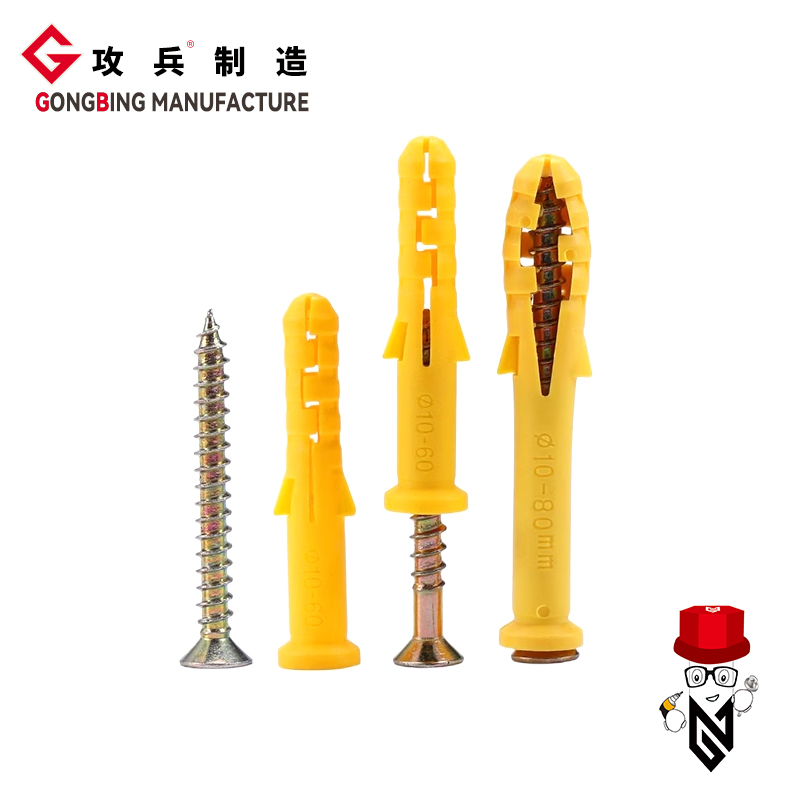j type foundation bolt
Understanding J Type Foundation Bolts A Comprehensive Guide
Foundation bolts are crucial components in construction, particularly in securing structural elements to concrete foundations. Among various types of foundation bolts, J type foundation bolts are commonly used due to their unique design and versatile application. This article explores the characteristics, applications, advantages, and installation methods of J type foundation bolts.
What are J Type Foundation Bolts?
J type foundation bolts are specifically designed bolts that feature a J-shaped bend at one end. This shape allows the bolt to anchor securely into concrete while providing a robust hold for structural connections. Typically made of high-strength steel, J type bolts are engineered to withstand substantial loads, making them essential in various construction projects.
Key Features
1. Shape and Design The distinctive J shape is crucial for its function, as it prevents the bolt from pulling out of the concrete. The bent end provides a mechanical lock that increases the tension capacity of the bolt.
2. Material Most J type foundation bolts are manufactured from carbon steel or stainless steel. The choice of material often depends on the environmental conditions of the construction site, such as exposure to moisture, chemicals, or extreme temperatures.
3. Size J type foundation bolts come in different sizes and lengths, allowing customization based on the specific requirements of a project. Proper sizing is vital for ensuring load capacity and compatibility with other structural components.
4. Coatings To enhance corrosion resistance, J type bolts may be coated with materials such as zinc or epoxy. This is particularly important in outdoor or marine environments where exposure to the elements can lead to deterioration.
Applications of J Type Foundation Bolts
J type foundation bolts are versatile and find applications across various sectors
1. Structural Steel Erection They are extensively used in structural steel buildings to connect columns and beams to the foundation, ensuring stability and strength.
2. Towers and Bridges In the construction of telecommunications towers, wind turbines, and bridges, J type foundation bolts provide the necessary anchor points to withstand lateral forces and dynamic loads.
3. Heavy Equipment Installation These bolts are widely utilized in anchoring heavy machinery and equipment to prevent movement during operation, ensuring safety and operational efficiency.
j type foundation bolt

4. Aviation and Marine J type foundation bolts are also relevant in the aviation and marine industries, providing secure anchorage for various installations in challenging environments.
Advantages of Using J Type Foundation Bolts
1. Enhanced Stability The unique shape of J type bolts allows for secure anchoring, which enhances the overall stability of structures.
2. Load Bearing Capacity Designed to handle significant loads, J type foundation bolts are reliable choices for heavy-duty applications.
3. Ease of Installation The installation of J type bolts is relatively straightforward, often requiring only basic hand tools, which can lead to enhanced productivity on a construction site.
4. Cost-Effective With their durability and strength, J type foundation bolts tend to offer a cost-effective solution over time, reducing the need for frequent replacement or repairs.
Installation Procedures
Installing J type foundation bolts requires careful planning to ensure proper alignment and load capacities. Key steps in the installation process include
1. Site Preparation Before installation, the foundation area must be excavated and cleaned to provide a solid base.
2. Positioning The J type bolts should be positioned accurately according to the construction drawings, ensuring they are aligned correctly with the structural elements.
3. Concreting Once positioned, the bolts are secured in place as concrete is poured. It is critical to monitor the positioning during this process to avoid misalignment.
4. Curing After concrete placement, adequate curing time is necessary before any load is applied to the structure, ensuring maximum bond strength between the bolt and concrete.
Conclusion
In conclusion, J type foundation bolts play a pivotal role in the structural integrity of various construction projects. Their design, strength, and versatility make them indispensable components in pillars of modern construction, from buildings and bridges to industrial installations. By understanding their characteristics and applications, engineers and contractors can optimize their use, ensuring safe and durable structures for years to come.
-
Weatherproof Plastic Expansion Anchors for OutdoorNewsJun.06,2025
-
Sustainability in the Supply Chain: Eco-Friendly TEK Screws ProductionNewsJun.06,2025
-
Load-Bearing Capacity of External Insulation FixingsNewsJun.06,2025
-
Double Head Bolts: Enhancing Efficiency in Industrial MachineryNewsJun.06,2025
-
Corrosion Resistance in Chipboard Screws: Coatings for Wholesale DurabilityNewsJun.06,2025
-
Butterfly Toggle Bolts : Enhancing Structural ResilienceNewsJun.06,2025
